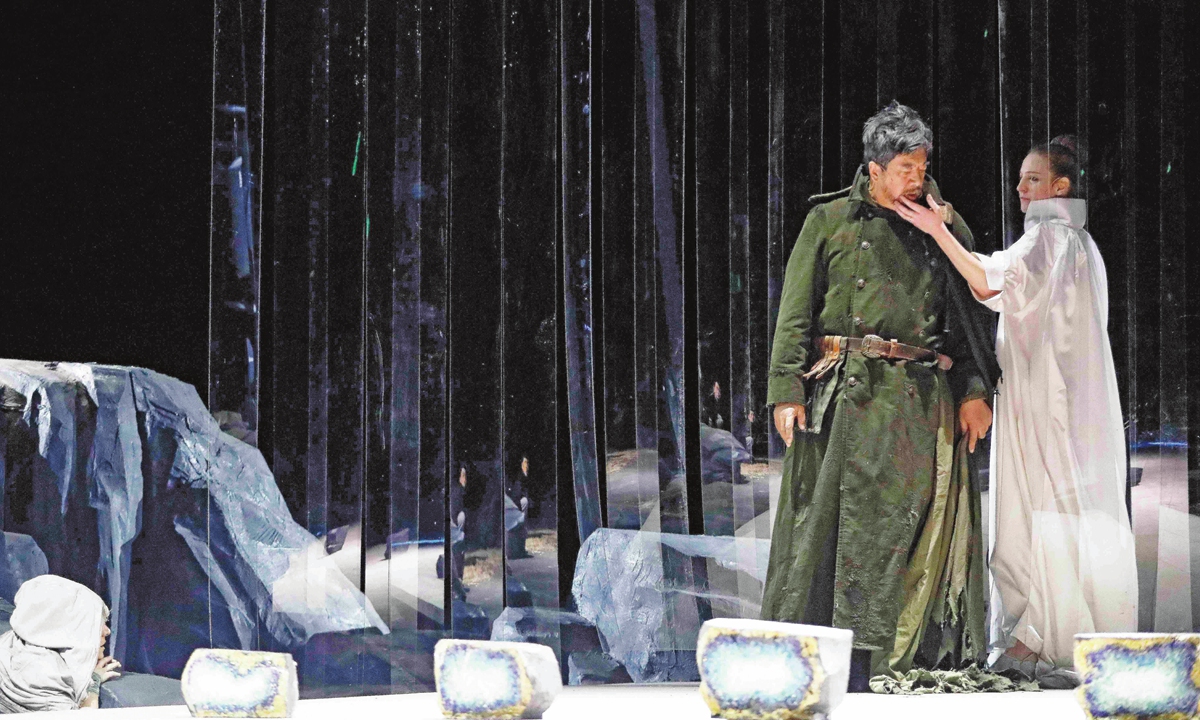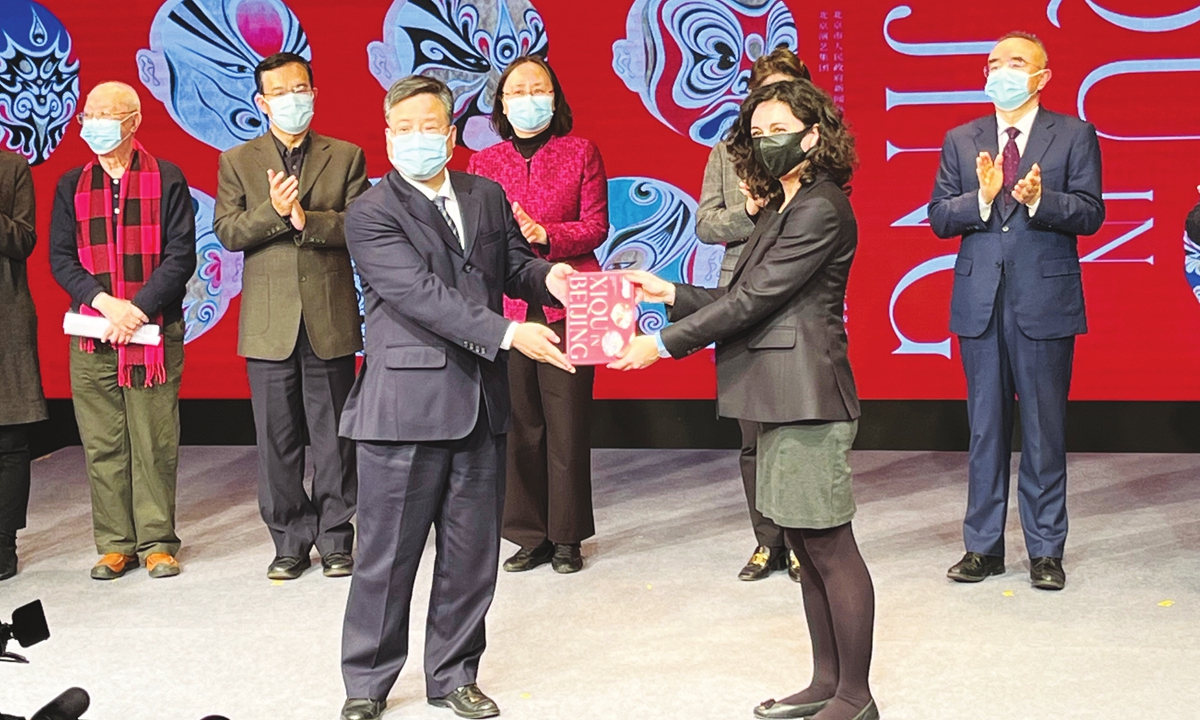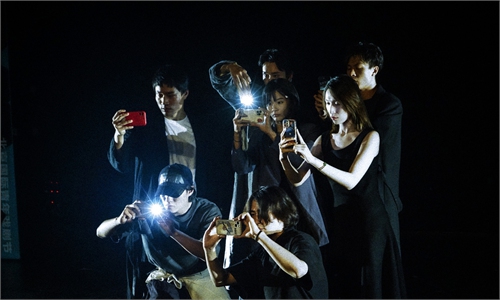ARTS / THEATER
Theater forum celebrates China-Greece cultural ties
Shared stage

Promotional material for the Chinese-Greek bilingual version of Agamemnon Photo: VCG
There is a Chinese saying that compares a great work of art to an eternal flame that is passed down from generation to generation.
The tale of the three generations of the Luo family and their contributions to cultural exchanges between China and Greece is the perfect match for this saying.
Luo Jinlin, a renowned 86-year-old director who has helped produce Chinese versions of ancient Greek classic plays such as Oedipus the King and Medea, recalled his family's ties with Greek culture on Thursday at a theater forum in Beijing for directors and scholars from China and Greece.
Luo Niansheng, the first Chinese student to attend the American School of Classical Studies at Athens in 1933, was a major force for introducing ancient Greek theater and literature such as Aesop's Fables and the works of Aeschylus to China. Influenced by his father's work, the younger Luo Jinlin began to stage Greek dramas and comedies in China.
It should come as no surprise that growing up in this family, Luo Tong, Luo Jinlin's daughter, would also take a great interest in Greece and later follow in the footsteps of her grandfather to study there.
"She chose not to return to China after completing study," Luo said.
He noted that this troubled him at first, but he later came to understand after she gave an explanation. "She is doing pretty much what her grandfather did - introducing traditional Chinese opera and culture to Greece."

Representatives of the Beijing Municipal Government and the Greek Embassy in China attend the Dialogue for City Temperature of Theatre in China and Greece in Beijing on November 10, 2022. Photo: Xu Liuliu/Global Times
Mutual appreciation
"The late Professor Luo Niansheng, a renowned Chinese scholar and translator, is remembered for his lifelong dedication to the translation and research of Greek literature and for his important contribution to furthering our friendship, a legacy carried on by his son and granddaughter," wrote Chinese President Xi Jinping in a signed article titled "Let Wisdom of Ancient Civilizations Shine Through the Future," which was published on November 10, 2019, in the Greek newspaper Kathimerini (The Daily) ahead of his state visit to the European country.
The Luo family is not alone in promoting mutual learning and cultural exchanges between the two countries as a number of performances and events have been held in recent years.
Thursday's forum, the Dialogue for City Temperature of Theater in China and Greece, was just such an event.
Part of celebrations marking the 50th anniversary of the establishment of bilateral relations between China and Greece and the China-Greece Year of Culture and Tourism, the forum included two roundtables - How to Explore New Ways to Spread Chinese Opera in the International Context and The Collision and Occurrence of Greek Drama and Chinese Opera.
"Today's dialogue and its series of roundtable discussions attracted audiences from both countries, allowing them to experience the charm and vitality of each other's operas and opera culture," Xiao Junzheng, Chinese ambassador to Greece said in a video address at the forum.
Chinese dramas and ancient Greek dramas share similarities and connections: Both originate from folk art, both value aesthetic presentation through means such as the use of masks, and both can be educational, said the ambassador.
'Mirror of humanity'
Audiences in the two countries have been able to enjoy many creative and culturally integrated dramas and operas by artists from China and Greece in recent years.
Back in November 2018, China's representative work The Orphan of Zhao was presented in Athens by Chinese director Wang Xiaoying with a number of Greek and Chinese actors.
Several months later, acclaimed director Stathis Livathinos presented Aeschylus' drama Agamemnon in both Chinese and Greek in Beijing with the participation of actors from both nations.
"It was a truly pioneering attempt to promote a dialogue between Greek and Chinese theaters," said Greek Ambassador to China Georgios Iliopoulos at the forum on Thursday, going on to mention a number of cooperative projects in theatrical studies that are underway at academies in China and Greece.
Wang, who also attended the event on Thursday, told the Global Times that he feels it is "cool to pursue the exchange and the collision of the two cultures" and that dramas have no boundaries.
"Audiences can understand the whole story even when they are not able to understand what is being said. That is the result of mutual learning and shared similarities," he said.
Drama is the representative art of culture and civilization and is "a mirror of humanity," noted Luo, who has "a deep understanding of exploring the dialogue, collision and integration of Eastern and Western dramas," he said.



